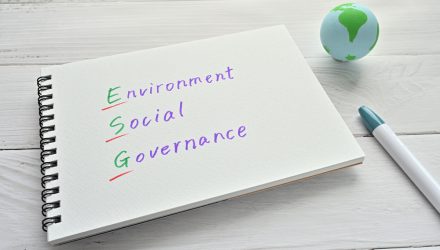Socially responsible investments that track environmental, social, and governance principles have outperformed this year and attracted greater inflows, but this does not necessarily mean a bubble is forming in the asset category.
“Overall, our findings deflate the notion of an ESG bubble during our sample period. If rising inflows into ESG investing had created a price bubble, we would expect to see rising valuations for these companies (as measured by increasing P/E ratios). Instead, our return decomposition showed little support for this theory. We found that outperformance of ESG was mainly driven by companies’ earnings growth and better dividend yields,” Guido Giese, Executive Director; Navneet Kumar, Vice President; and Zoltán Nagy, Executive Director, MSCI Research, said on ETF Strategy.
ESG funds have been attracting inflows over the past four years, and the trend accelerated in the first nine months of 2020, despite, or maybe even because of, the Covid-19 crisis.
Meanwhile, during the first half of 2020, all major MSCI ACWI ESG indexes outperformed the MSCI ACWI. Previous research by MSCI revealed that this outperformance was partially due to equity style factors like low volatility and quality and exposure to the ESG factor.
When looking at historical data, the MSCI researchers found that during the study period the main reason high-ESG-rated companies outperformed an equal-weighted benchmark was due to their higher earnings growth of 2.89% per year since May 2013, and to a lesser degree, higher reinvestment returns of 0.28%. Meanwhile, the price-to-earnings expansion was slightly negative at -1.86% for high-ESG-rated issuers.
In contrast, the lowest tercile in the data points revealed a clear relative decline in earnings of -9.22% per year, but stock prices dipped at a slower rate. Consequently, the researchers explained that the P/E ratio for the lowest-ESG-rated tercile expanded significantly at 8.17% per year.
“Overall, these findings suggest that the outperformance of top tercile (high-ESG-rated companies) was not driven by increasing valuation levels during the study period,” the researchers added.
For more market trends, visit ETF Trends.

